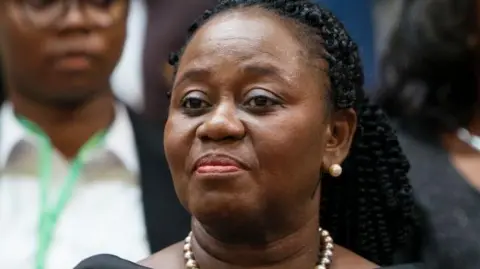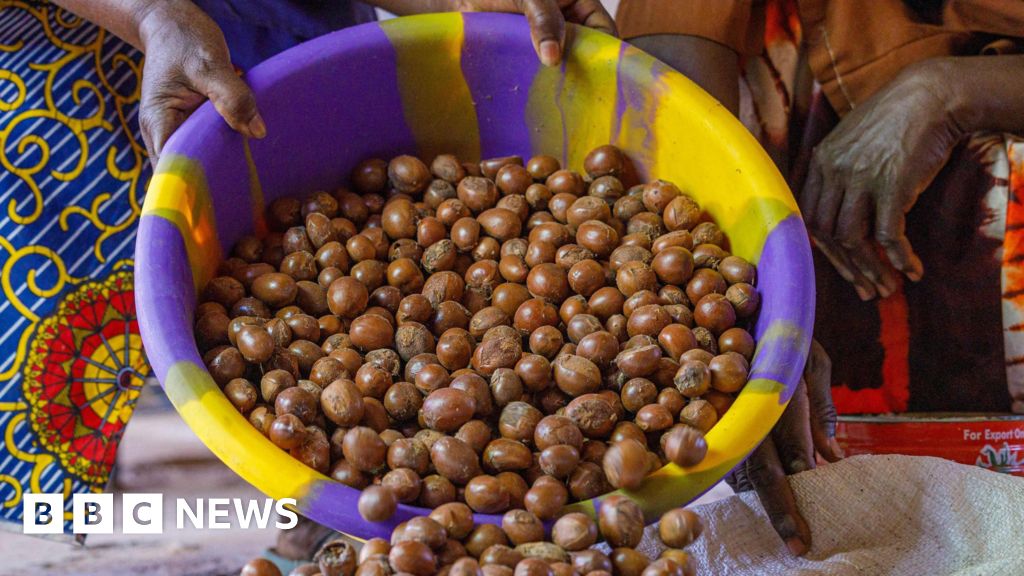In a troubling revelation, a recent investigation by BBC Eye has exposed Aveo Pharmaceuticals, a Mumbai-based company, as a significant contributor to the ongoing opioid crisis in West Africa. The firm is allegedly manufacturing and illegally exporting unlicensed, highly addictive opioid pills to countries such as Ghana, Nigeria, and Côte d'Ivoire, where they are readily available on the streets.
Known for the manufacturing of various pills marketed under different brand names, Aveo's products often contain a perilous combination of tapentadol—a potent opioid—and carisoprodol, a muscle relaxant banned in Europe due to its addictive properties. The combination has been deemed illegal and unlicensed globally, but its low cost and availability have given it traction in the West African drug market.
The BBC's undercover investigation included the infiltration of Aveo's factory, where a hidden camera captured one of the company's directors, Vinod Sharma, discussing the marketing of these dangerous drugs. In the footage, Sharma acknowledged the addictive nature of the product while dismissing concerns about its health implications, framing the operation as simply "business." This exposure underscores the ethical dilemmas inherent in the pharmaceutical trade, particularly concerning the health of vulnerable populations.
In Ghana, the devastating impact of these drugs is palpable. Community leaders have initiated grassroots movements to combat the growing crisis spurred by these substances. In Tamale, local chief Alhassan Maham highlighted the drastic effects on youth, framing the addiction as a destructive force that ravages lives. The BBC team documented these efforts, following local citizens as they intervened against drug dealers and seized products stamped with Aveo's branding.
The opioid crisis in Nigeria is also alarming, with estimates suggesting that four million citizens are affected by opioid abuse. The country's authorities have struggled to contain the problem, especially following past regulations that targeted another opioid, tramadol. After a crackdown, producers shifted to new unlicensed formulations like Aveo’s tapentadol-carisoprodol combination, potentially to bypass existing laws.
Health experts have raised concerns regarding the dangers of this new drug cocktail, pointing out that it could lead to severe respiratory issues and overdose fatalities. The current lack of clinical trials on the combination entrench fears that it poses significant risks devoid of any therapeutic benefits.
Despite Indian laws prohibiting the export of unlicensed drugs, there are allegations that Aveo, along with other pharmaceutical companies, is evading these regulations. India's regulatory body has acknowledged its duty to uphold global health standards and professed to monitor exports closely.
However, the widespread distribution of Aveo's products—evidenced by drug raids and seizures across West Africa—indicates a pressing need for more stringent oversight both within India and among exporting nations.
The investigation embodies a broader narrative about the responsibility of pharmaceutical companies and their global footprint, particularly in regions with limited resources to combat such public health crises. As health authorities in West Africa continue to battle the repercussions of importing these unlicensed opioids, the disconnect between manufacturing oversight and the realities on the ground presents a disconcerting challenge.
Efforts to combat this crisis in West Africa, including local community initiatives to destroy seized drugs, illustrate the determination to reclaim public health even as producers like Aveo continue to profit from the growing epidemic.
Known for the manufacturing of various pills marketed under different brand names, Aveo's products often contain a perilous combination of tapentadol—a potent opioid—and carisoprodol, a muscle relaxant banned in Europe due to its addictive properties. The combination has been deemed illegal and unlicensed globally, but its low cost and availability have given it traction in the West African drug market.
The BBC's undercover investigation included the infiltration of Aveo's factory, where a hidden camera captured one of the company's directors, Vinod Sharma, discussing the marketing of these dangerous drugs. In the footage, Sharma acknowledged the addictive nature of the product while dismissing concerns about its health implications, framing the operation as simply "business." This exposure underscores the ethical dilemmas inherent in the pharmaceutical trade, particularly concerning the health of vulnerable populations.
In Ghana, the devastating impact of these drugs is palpable. Community leaders have initiated grassroots movements to combat the growing crisis spurred by these substances. In Tamale, local chief Alhassan Maham highlighted the drastic effects on youth, framing the addiction as a destructive force that ravages lives. The BBC team documented these efforts, following local citizens as they intervened against drug dealers and seized products stamped with Aveo's branding.
The opioid crisis in Nigeria is also alarming, with estimates suggesting that four million citizens are affected by opioid abuse. The country's authorities have struggled to contain the problem, especially following past regulations that targeted another opioid, tramadol. After a crackdown, producers shifted to new unlicensed formulations like Aveo’s tapentadol-carisoprodol combination, potentially to bypass existing laws.
Health experts have raised concerns regarding the dangers of this new drug cocktail, pointing out that it could lead to severe respiratory issues and overdose fatalities. The current lack of clinical trials on the combination entrench fears that it poses significant risks devoid of any therapeutic benefits.
Despite Indian laws prohibiting the export of unlicensed drugs, there are allegations that Aveo, along with other pharmaceutical companies, is evading these regulations. India's regulatory body has acknowledged its duty to uphold global health standards and professed to monitor exports closely.
However, the widespread distribution of Aveo's products—evidenced by drug raids and seizures across West Africa—indicates a pressing need for more stringent oversight both within India and among exporting nations.
The investigation embodies a broader narrative about the responsibility of pharmaceutical companies and their global footprint, particularly in regions with limited resources to combat such public health crises. As health authorities in West Africa continue to battle the repercussions of importing these unlicensed opioids, the disconnect between manufacturing oversight and the realities on the ground presents a disconcerting challenge.
Efforts to combat this crisis in West Africa, including local community initiatives to destroy seized drugs, illustrate the determination to reclaim public health even as producers like Aveo continue to profit from the growing epidemic.





















